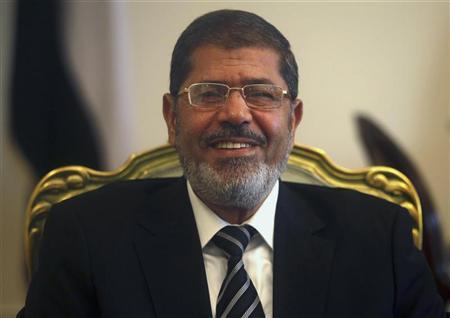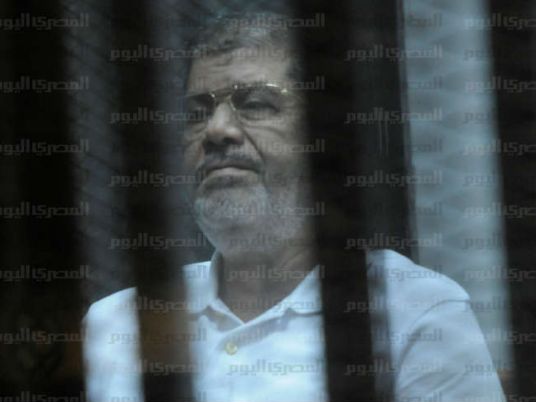
After five months in power, President Mohamed Morsy has withdrawn five significant decrees. The major decisions that Morsy has made and later retreated on are his decision to reinstate the dissolved People’s Assembly, his appointment of former Prosecutor General Abdel Meguid Mahmoud as ambassador to the Vatican, the decision to force stores and restaurants to close by 10 pm, his 22 November constitutional declaration that protected the Constituent Assembly from dissolution, and, most recently, his decision to raise taxes on a number of commodities.
Parliament reinstatement
On 8 July, Morsy ordered the People’s Assembly to reconvene, citing Article 33 of the March 2011 Constitutional Declaration and directly challenging a 15 June Supreme Constitutional Court decision that dissolved the elected body.
But Morsy withdrew the decision on 11 July, expressing his commitment to the original court ruling. His move came after the Supreme Constitutional Court issued a fresh ruling the day before, reaffirming the assembly’s unconstitutionality. The president stressed his respect for the constitution and the judiciary, while emphasizing that he was anxious to avoid conflict between branches of government.
The prosecutor general, twice removed
On 11 October, Morsy issued a decree appointing former Prosecutor General Abdel Meguid Mahmoud as Egypt’s ambassador to the Vatican, tasking one of Mahmoud’s aides with taking his place temporarily until a substitute was named. Morsy made the appointment amid widespread criticism of prosecutors after the Cairo Criminal Court exonerated several key former regime figures of responsibility for murdering protesters during the “Battle of the Camel” in February last year.
A day later, Morsy canceled the decision, in agreement with Mahmoud, after members of the judiciary protested. But Morsy removed Mahmoud again on 22 November, replacing him with Talaat Ibrahim Abdallah, as part of his constitutional declaration. Though Morsy revoked the declaration on 8 December, he did not reinstate Mahmoud.
Earlier closure of businesses
On 30 October, the government announced a law forcing all stores and restaurants to close by 10 pm. The Local Development Ministry had stressed that the decision was final.
However, one day later, Local Development Minister Ahmed Zaki Abdeen said the application of the new measure was postponed to study the penalties to be imposed on violators. He later said the decision would be implemented on 1 December, denying reports that the government canceled it under media pressure, but the law remains inactive as of now.
The constitutional declaration
On 21 November, Morsy issued a constitutional declaration that stipulated retrials for former regime figures, replaced Prosecutor General Abdel Meguid Mahmoud, protected the Constituent Assembly and the Shura Council from dissolution, and granted the president broad power beyond judicial review.
The declaration, particularly the decisions to protect the Constituent Assembly and Shura Council and to grant Morsy more powers, ignited fierce political opposition. As tens of thousands of citizens protested the decree, and several judges threatened to boycott supervision of the referendum on the new constitution, Morsy decided on 9 December to rescind the decree, replacing it with a modified document that nonetheless kept the referendum date unchanged.
Price increases
Morsy’s quickest retreat came on 9 December. Being the holder of legislative power, Morsy decided to increase taxes cigarettes, natural gas, fizzy drinks, alcohol and electricity. He withdrew the decision within hours on 10 December, with his office saying in a statement that he had returned the decision to the Cabinet for further consideration.


